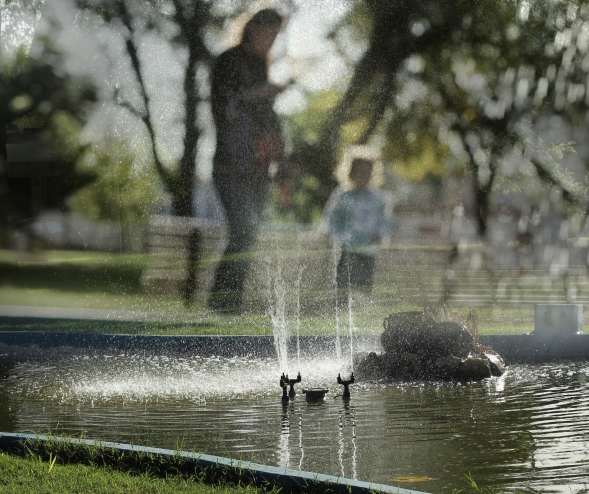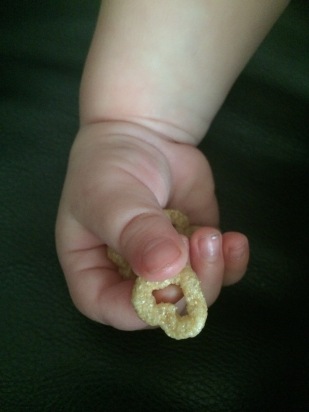This is a re-post from another blog that I host. It’s a follow up to my post “The Best Accident” from last February. The few months I spent without a smart phone this winter/spring were very peaceful and I found that I did not miss it. We moved to a new place and I again have a smart phone. This post is a reflection on setting boundaries so that our technology does not take over our lives.
We women like to flatter ourselves that we are natural “Multi-taskers.” I suppose it is a convenient notion that may help us feel more capable of juggling the many balls we try to keep in the air between family, work and community responsibilities.
However, women don’t seem to be the only ones convinced of some special multi-tasking ability. Today’s fast-paced and hyper-connected world makes overlapping demands on everyone’s attention. And with the advent of smart devices so small they can fit on a watch we have come to feel confident that we can keep tabs on everything at once and not miss out.
Unfortunately, both science and intuition tell us this is false.
Neuroscientist and MIT professor Earl Miller tells us: “People can’t multitask very well, and when people say they can, they’re deluding themselves…The brain is very good at deluding itself.”
Miller says that for the most part, we simply can’t focus on more than one thing at a time.
“Switching from task to task, you think you’re actually paying attention to everything around you at the same time. But you’re actually not. You’re not paying attention to one or two things simultaneously, but switching between them very rapidly.” *
Are these statements a revelation to anybody out there? I would expect not. When I read this article, it rang true because of the evidence of this that I see in my life. Technology and media seem to have done a particularly good job of convincing us that we CAN mulit-task; that we can be constantly plugged-in and still fulfill all our obligations, build and maintain healthy relationships, and cultivate inner-peace. If you contemplate the following scenarios with me I think you agree that this simply is not so.
Think about the last time you cruised Instagram, ESPN or Pinterest while your spouse was telling you about their project at work or something that had upset them that day. Did you catch much of what they said or what it meant for them and for you? We may be good at letting out an occasional “mmm hmmm,” or “Wow” or “really?” to convince ourselves and those around us that we are truly engaged with them. But are we? Or are we “deluding” ourselves?
Do I complain about not having enough time with my husband and then find myself hanging with technology and online updates while sitting next to him instead of really connecting with one another once are kids are finally in bed?
Do you or I ever scroll through a newsfeed when talking on the phone with somebody? What kind of jerk-move is that anyways?! Somebody takes the time to call me (in a world where no one calls anymore) because they want to connect. Yet I just have to fulfill that jittery desire to do two things at once–to have my finger on two pulses. Who am I helping here? Does my newsfeed really need the listening ear more than my friend does? And do I need that connection to a world of superficial “friendships” more than I need my real-life connection to a good friend?
Am I a stay-at-home mom in body only if I am constantly disrupting interactions with my precious children by checking up on every ping from my phone? Or am I checking out and getting lost online when they need my attention and connection with them? If I am not devoting my mind and attention to these little beings, why stay home under that pretense?
And do I truly feel relaxed or fulfilled when I hop online at the end of a long day to “unwind” through mindlessly scrolling? Would my soul be more satisfied by spending time alone with myself? Might my inner-self benefit through meditating, reading a book, or exerting some of my restless energy in a creative outlet?
These questions are not intended to provoke feelings of guilt, only to help us all reflect on the unnoticed ways our technology use may be fraying our relationships with ourselves and with others. So often technology seems an inseparable part of our lives. I am not advocating a complete, ascetic type denial of all things that come with screens. What I am advocating is greater awareness, balance, and separation at needed intervals so that we can connect with ourselves and with those around us and find joy in our lives.
I expect that most of us want to focus more of our energy on our relationships offline than we do online. We know that is the better investment. But how do we get there? How do we change our habits?
Firstly, we must honestly acknowledge where we need to improve. We all know what those areas are–but they make us a bit uncomfy. So we ignore the nudges we feel or drown out the nagging voice that is telling us when and how to unplug and reconnect. Start listening to that voice. Examine your habits and commit to making a positive change. Start with small changes and build on the positive habits you are establishing.
If you are looking for a starting place in an effort to “unplug”, here are some suggestions of things that have worked well in our family to keep things better balanced:
Designate an hour at which you will unplug from all media and do something truly fulfilling or relaxing. My husband and I have made the hour before bed-time media free and have noticed huge benefits individually and as a couple. I also recommend starting the day unplugged. I have found I am much more energized throughout the day when I start my day in meditation, reading, or exercise rather than plunging directly into the whirlpool waiting for me on my phone or laptop.
Make mealtimes nourishing by unplugging. Studies show that sharing meals with others is a powerfully connective and nourishing experience for us humans. Connecting with one another at mealtimes builds trust, confidence, and community among those who share the table. If you are eating alone, take the opportunity to connect with yourself by putting away distractions and allowing your thoughts to rest and to blossom. Although it can be challenging at first to turn off the TV and not check your phone during meals, you will notice a positive difference in yourself and in your relationships.
Silence your phone and check it at regular (not constant) intervals during the day. This has helped me to engage fully with my life and to feel a great deal of joy by doing so. I am less distracted and fragmented and have found that I have more mental/emotional capacity available to offer my children.
Leave the phone in the car (or at least silence it) when you are out with friends or family. Show your loved ones that they come first and that you are more eager to hear what comes out of their mouths during your time together than what a politician tweets or an acquaintance posts.
Making changes to live more fully offline than online feels quite counter-culture nowadays. But you will not be alone if you take on the project. Growing numbers of people are feeling dissatisfied with a life where attentive face-to-face relationships and inner peace are being exchanged for new hardware and better apps. You will find that your efforts will be rewarded and that once you start to intentionally unplug, your soul will feel hungry for more and more time to yourself. If it feels hard to make changes or if you wonder if it is worth it, just remember this–your phone will likely be dead in two years. Your relationships (with both yourself and others) will last forever. Where, then, do you want to invest the energies of your soul?
How have you set personal boundaries to allow you to have healthy relationships with technology and to maintain your face-to-face relationships? What are the challenges of attempting to unplug and do you have any tips for others seeking to do the same?
*Quotes are taken from “Think You’re Multi-tasking? Think Again” by Jon Hamilton, NPR news
Find the full article at http://www.npr.org/templates/story/story.php?storyId=95256794




